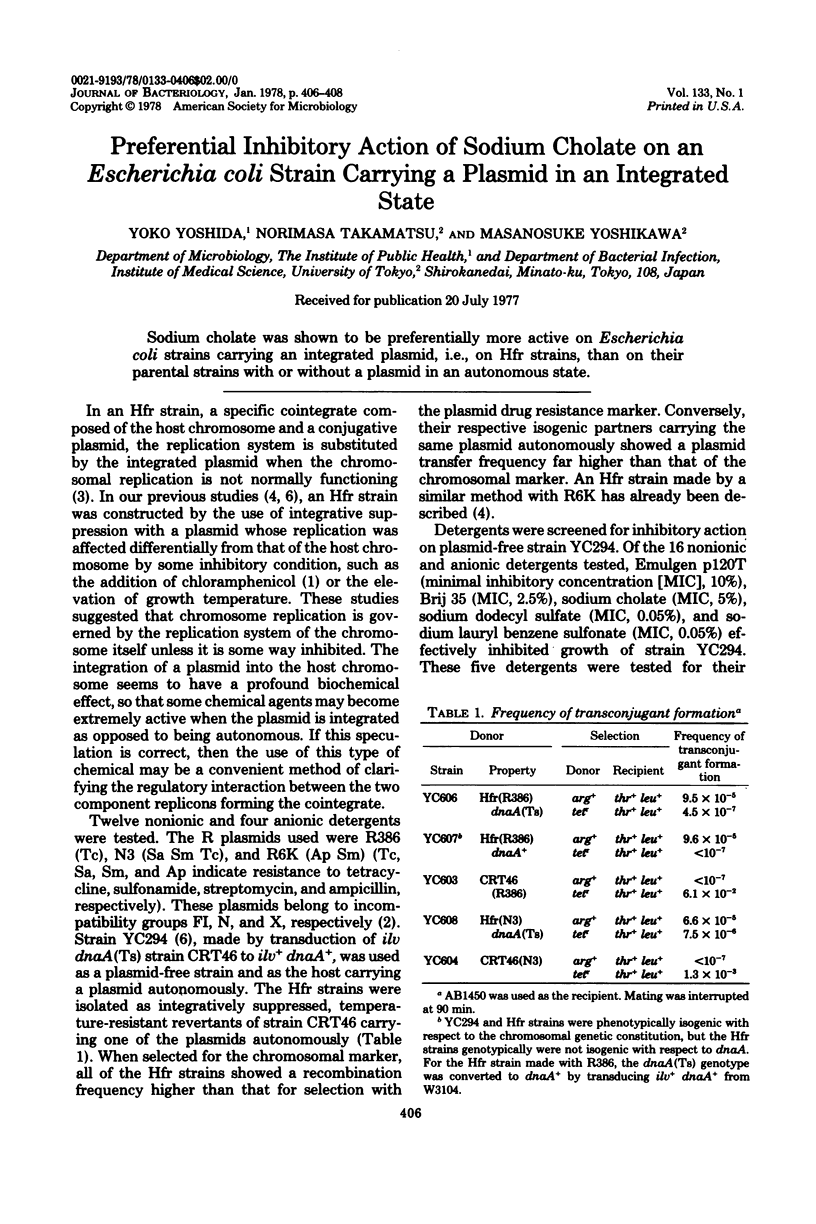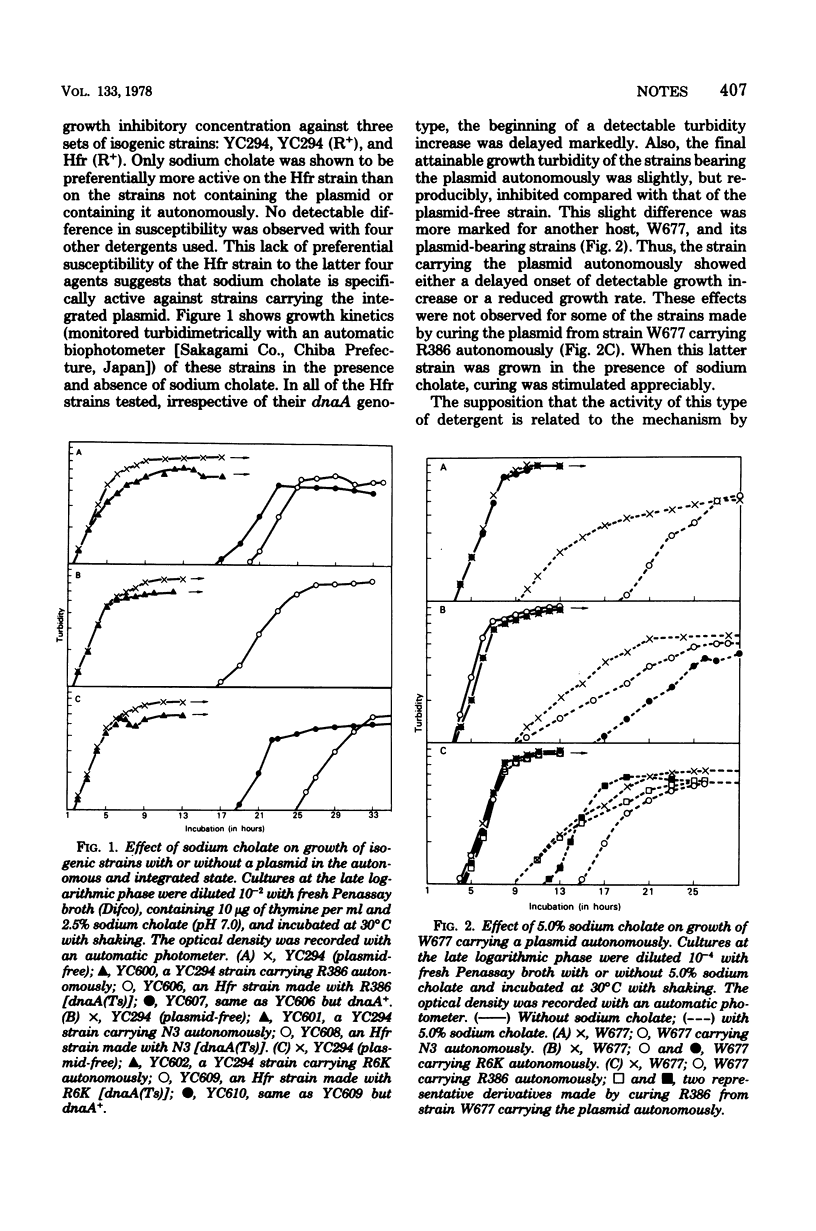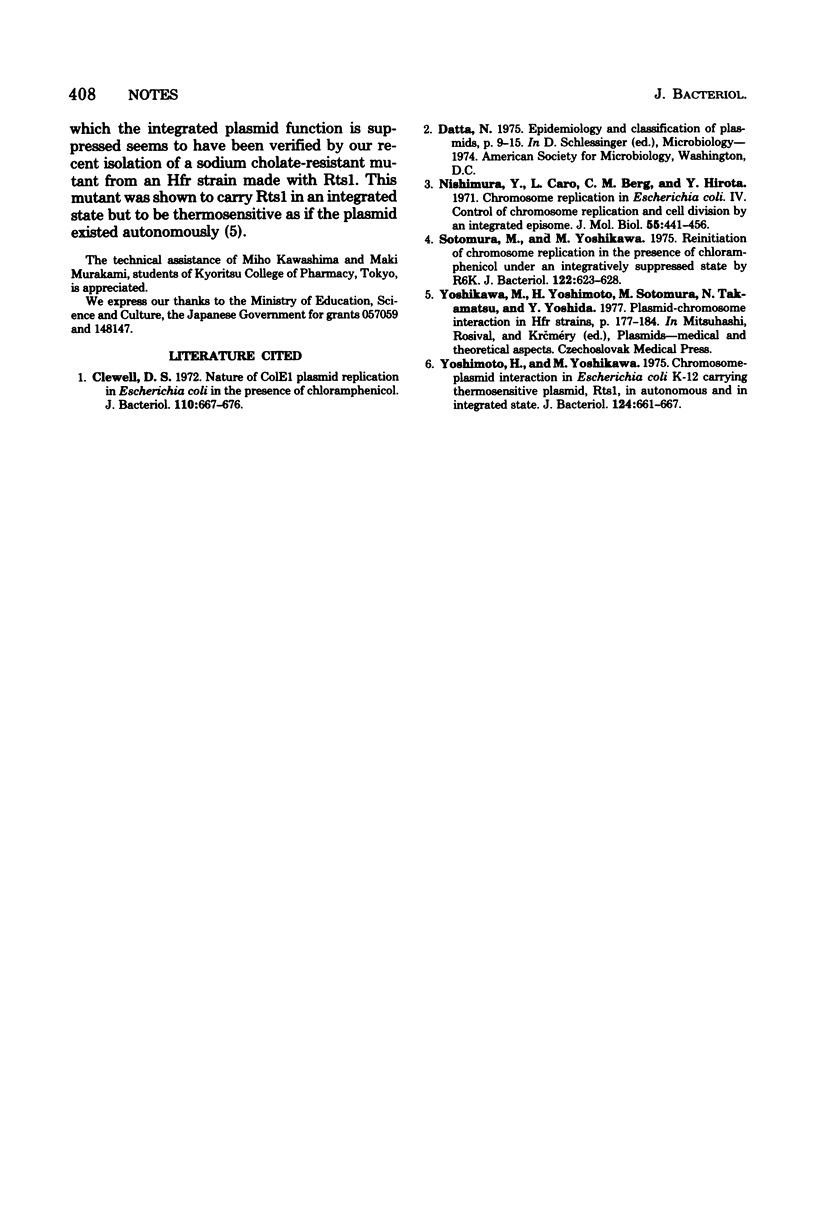Abstract
Sodium cholate was shown to be preferentially more active on Escherichia coli strains carrying an integrated plasmid, i.e., on Hfr strains, than on their parental strains with or without a plasmid in an autonomous state.
Full text
PDF


Selected References
These references are in PubMed. This may not be the complete list of references from this article.
- Clewell D. B. Nature of Col E 1 plasmid replication in Escherichia coli in the presence of the chloramphenicol. J Bacteriol. 1972 May;110(2):667–676. doi: 10.1128/jb.110.2.667-676.1972. [DOI] [PMC free article] [PubMed] [Google Scholar]
- Nishimura Y., Caro L., Berg C. M., Hirota Y. Chromosome replication in Escherichia coli. IV. Control of chromosome replication and cell division by an integrated episome. J Mol Biol. 1971 Feb 14;55(3):441–456. doi: 10.1016/0022-2836(71)90328-7. [DOI] [PubMed] [Google Scholar]
- Sotomura M., Yoshikawa M. Reinitiation of chromosome replication in the presence of chloramphenicol under an integratively suppressed state by R6K. J Bacteriol. 1975 May;122(2):623–628. doi: 10.1128/jb.122.2.623-628.1975. [DOI] [PMC free article] [PubMed] [Google Scholar]
- Yoshimoto H., Yoshikawa M. Chromosome-plasmid interaction in Escherichia coli K-12 carrying a thermosensitive plasmid, Rts1, in autonomous and in integrated states. J Bacteriol. 1975 Nov;124(2):661–667. doi: 10.1128/jb.124.2.661-667.1975. [DOI] [PMC free article] [PubMed] [Google Scholar]


